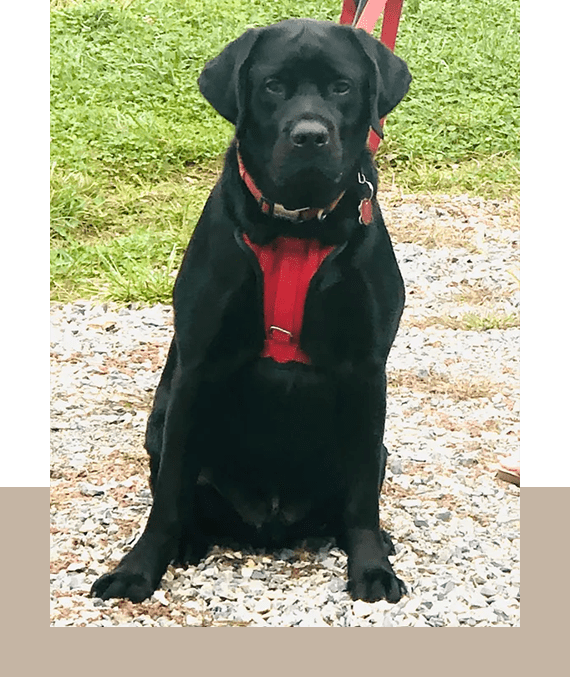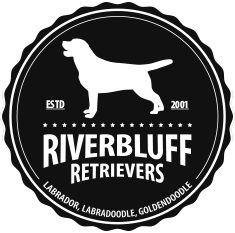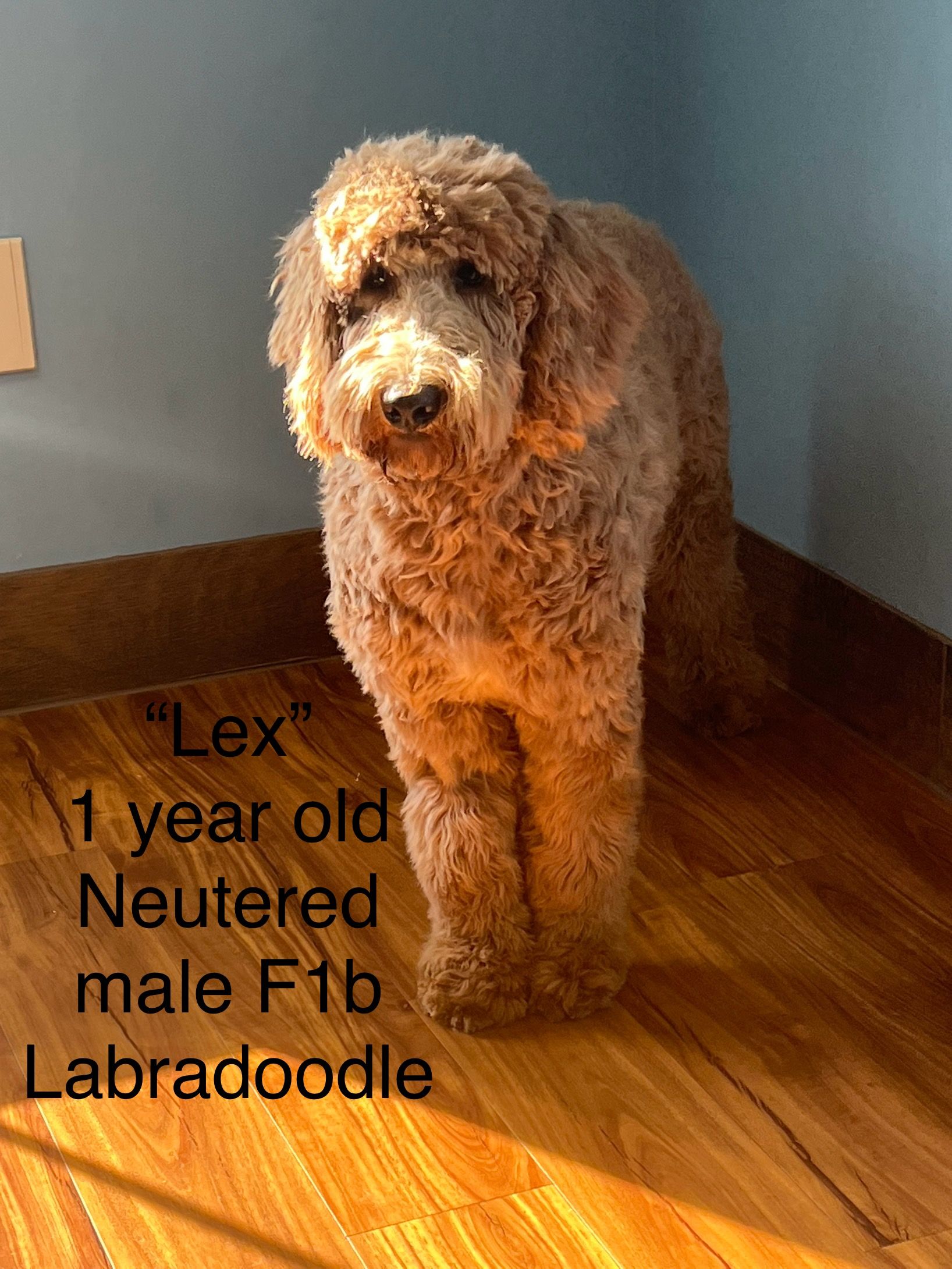Adult & Puppy Training Tips from Riverbluff Retrievers in Radford, VA

Riverbluff Retrievers Encourages All Owners to Properly Puppy Train
At Riverbluff Retrievers, we understand that training is important for all dogs and offer these adult and puppy training tips. We offer to have a trainer visit your dog before it goes home with you for an extra cost of $180. Leash walking, crate training, and housebreaking will be covered by the trainer. While we mostly have puppies available, we occasionally will have an adult dog for sale. Since training should start at a young age, all of our older pups and adult dogs are fully trained before sale. Check out the gallery below for available dogs. If interested in one of our older labrador retrievers, labradoodles, or golden doodles, contact us online. You can also text (540) 239-1734.
When to Start Dog Training?
For most puppies, the best time to start training is when they are about seven to eight weeks old. Various studies and our own experience show most effective training uses moderate corrections and positive rewards. Work on one skill at a time. This will lessen the confusion that your pup may have and increase the effectiveness of the training. The seven basic commands that all dogs should learn are: come, down, heel, off, no, sit, and stay.
While each dog has its own personality, labrador retrievers, labradoodles, or golden doodles overall are quick learners and easy to please. It is also important to introduce them socially and to scenarios as a part of their overall training. These interactions can have a huge effect on the dog’s future.
Dog Training Advice:
Tip #1: Consistency
Consistency is one of the most crucial guidelines for any kind of training. Figure out the specifics of how you will train before you start. What phrase or hand gesture will you use to denote the new behavior? Are you going to use a clicker? To prevent your dog from receiving conflicting messages, be sure that everyone in your household is aware of the guidelines. Your dog will learn the desired behavior fast with consistency.
Tip #2: Your Training Sessions Should be Brief
Dogs find it challenging to maintain long-term attention on a new habit. Results from several small workouts spaced throughout the day will be superior to those from a single lengthy workout. Be patient with your dog, as well. Take your time learning each new ability because every dog picks things up at a different rate.
Tip #3: Resist Repeating Commands if not Followed
When you say the command repeatedly while they ignore you, it breaks their connection between the word and wanted behavior. The best way to secure the right associations is to only ask for actions you are certain they can do. For instance, when practicing “come,” only allow them off-leash if you know they will come to you when called. Do not let them off if you are not confident that this will occur. Keep them on the leash so if you say “come,” you can correct them if they do not listen. This lets them know to come back to you on the first command — not the fourth or fifth.
Tip #4: Be Positive, Resist Punishments, and Enjoy Your Training Sessions
It should not be boring to train. This is a wonderful opportunity for you and your dog to enjoy yourselves and get closer to one another. With incentives, pets, and a positive outlook, training may remain enjoyable and interesting. Instead of penalizing poor conduct, emphasize praising good behavior. When you use punishments, your dog learns a behavior out of fear of you and of the repercussions. This could work in some situations, but it does not foster a relationship or a desire to work for you. According to research, rewarding excellent behavior makes dogs considerably more likely to listen and behave nicely than penalizing bad behavior.

